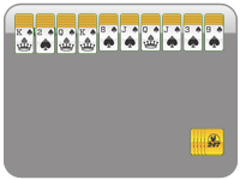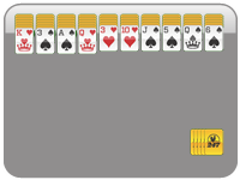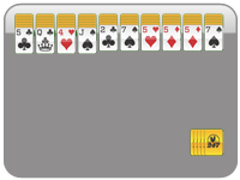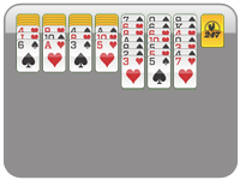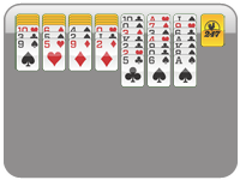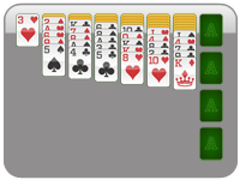8 Things to Do in Retirement to Keep Busy and Active

Retirement is meant to be the most relaxed time of our lives, but that can bring challenges of its own. It’s common to be worried about staying active and engaged during retirement. This article will discuss why we struggle to stay occupied and even give you ideas on how to keep busy in retirement.

Why is keeping busy in retirement so hard?
After retirement, why is it that so many people struggle to stay busy? Life circumstances and our environment tend to be different, and they often inform how retirement feels on a daily basis.
You no longer have work and its social benefits
This sounds strange—isn’t not working the entire point of retirement?
That’s absolutely true, but we often underestimate how much our jobs shape our lives throughout decades. For many, friends in their adult years were first introduced as colleagues or coworkers. When we retire, we suddenly lose a lot of social interaction we’d normally have on a daily basis. This can quickly make us feel lonely.
It’s also important to recognize the loss of mental stimulation and personal satisfaction that our careers give us. You worked hard to secure the position you were in when you retired. Entering retirement, all that time, energy, and hustle is all gone.
Losing work—and its social network—can make retirement feel like a prison, rather than relaxation.
Health restraints can make activity difficult
Retirement age also brings with it many physical challenges. Even with a healthy diet and regular exercise, our bodies will experience difficulties as we age. At least 35% of seniors report experiencing issues with mobility. Limited mobility makes it difficult to stay connected with friends, keep up with our favorite hobbies, and stay on top of our daily routine.
Besides mobility, other health conditions affect how much independence we’re able to enjoy in our retirement age. It’s too easy to feel like a burden to oneself and, in turn, to others. This can cloud an otherwise pleasant stage in our lives in shame.
Friends or family who aren’t retired have busy schedules
For retirees with children or younger families, the younger generation's time restraints can make it difficult to make plans, despite retirees having an abundance of freedom. Finding balance with the schedules of friends and family can be difficult and often exacerbates feelings of loneliness and social isolation.

8 things to do in retirement to keep busy and active
Fortunately, retirement doesn’t have to be a punishment after all those years of hard work. There are many different things to do in retirement to keep busy. The trick to keeping busy in retirement, of course, is knowing what the viable options are. This article will provide eight different methods for keeping active and satisfied with your retirement.
Pick up a new hobby
With all the new free time on a retiree’s hands, picking up a new hobby is a fantastic way to alleviate boredom. There are plenty of fulfilling activities that almost everyone can do, even for those with limited mobility or other health conditions. Drawing, listening to music, writing, and more are just a few examples.
Whatever grabs your interest, one of the best parts about picking up a new hobby is the mental stimulation of learning something new. Keeping your brain active and engaged in your older years is continually recommended by doctors and mental health experts as a method of limiting severe mental decline. New hobbies keep the brain active and stimulated, strengthening your cognitive ability during retirement.
Focus on your physical health
For those who are able, regular exercise is a big part of staying healthy and busy during retirement age. It’s important, whether you’re new to exercise or not, to build a daily routine that incorporates exercise into your life. However, appreciating your current limitations is necessary to avoid burnout or further injuring yourself through overexertion. Sometimes, all you need is a simple 15-minute stretch in the morning and before bed.
Also, a healthy diet is instrumental in keeping your body in good shape as you age. It can also be a vital part of managing distressing mental health dilemmas that can be exacerbated by aging, such as loneliness and depression.
Participate in games and fun activities
Keeping busy in retirement isn’t all that difficult especially if you’re interested in games. Games are both a way to pass the time during retirement and a way of facilitating social activity. There’s a reason so many older folks incorporate games into their daily lives. There are also so many games to choose from, whether physical or digital.
Card games are some of the most accessible and easiest to set up, making them perfect for entertaining guests or meeting new friends. For example, Solitaire can be played alone and serve as a fun challenge for the brain utilizing advanced reasoning skills. If you’re looking for games more suited towards social play, there are tons to choose from: poker, bridge, rummy, and more.
Meet more retired people
Loneliness is a huge stressor in retired life, which is why it’s important to form a community of friends for this exciting new stage of life.
Research has shown that social isolation is dangerously endemic among seniors, leading to poor psychological health and potentially physical repercussions. Keeping up with old friends, or making new ones, are crucial to managing loneliness.
If you’re not able to spend time with family or current friends, new hobbies like the ones already listed are great places to find like-minded people.
Finally take time to travel
There are many places to go but so little time to visit them. Keeping busy in retirement may be the excuse you need to take the trips you’ve always wanted to.
Keep in mind that traveling can be stressful on your body, especially during retirement age, so traveling with friends or family is highly recommended for safety. That’s helpful anyway, as the only thing better than a trip across the world is that trip alongside the people you love!
Take care of a pet or plants
Pets can be our constant companions when we’re unable to spend time with others as easily. Cats are relatively independent and offer an easier workload for those lacking the mobility to take care of a larger animal.
If you’re able to care for an energetic animal like a dog, certain breeds can be trained to become service animals and assist with specific physical tasks. Service dog laws vary across the United States; to find out more information, the ADA has a helpful article about service animals.
Learn or improve a skill
Honing a skill takes practice and time; luckily, that’s what retirees have a lot of! Many skills that require fine motor control—such as painting, carving, or knitting—are fantastic ways to keep your mind occupied. In addition, exercising your motor flexibility can keep you from suffering joint pain in your retirement years. Just be sure not to overexert yourself if pain begins to flare up.
Give back to your community
With all that you’ve achieved in your life, it might be time to think about the legacy you’ll be leaving behind. Giving back to your community through volunteer work is a way to pass on the good fortune that you’ve been able to enjoy. Nonprofits, food banks, animal shelters, and countless other organizations all need help every day. Look into places that could use your assistance!
Start enjoying your retirement—you’ve earned it!
Your retirement is the reward for a life of working hard and saving for this moment of comfort. Don’t let it become a new stressor to pile on this late in your life. Following these tips to stay active, healthy, and happy in your retirement should set you up to live your days to their fullest!
Solitaire Games
More Solitaire Games
More Games
Solitaire News
Disclaimer
DISCLAIMER: The games on this website are using PLAY (fake) money. No payouts will be awarded, there are no "winnings", as all games represented by 247 Games LLC are free to play. Play strictly for fun.




